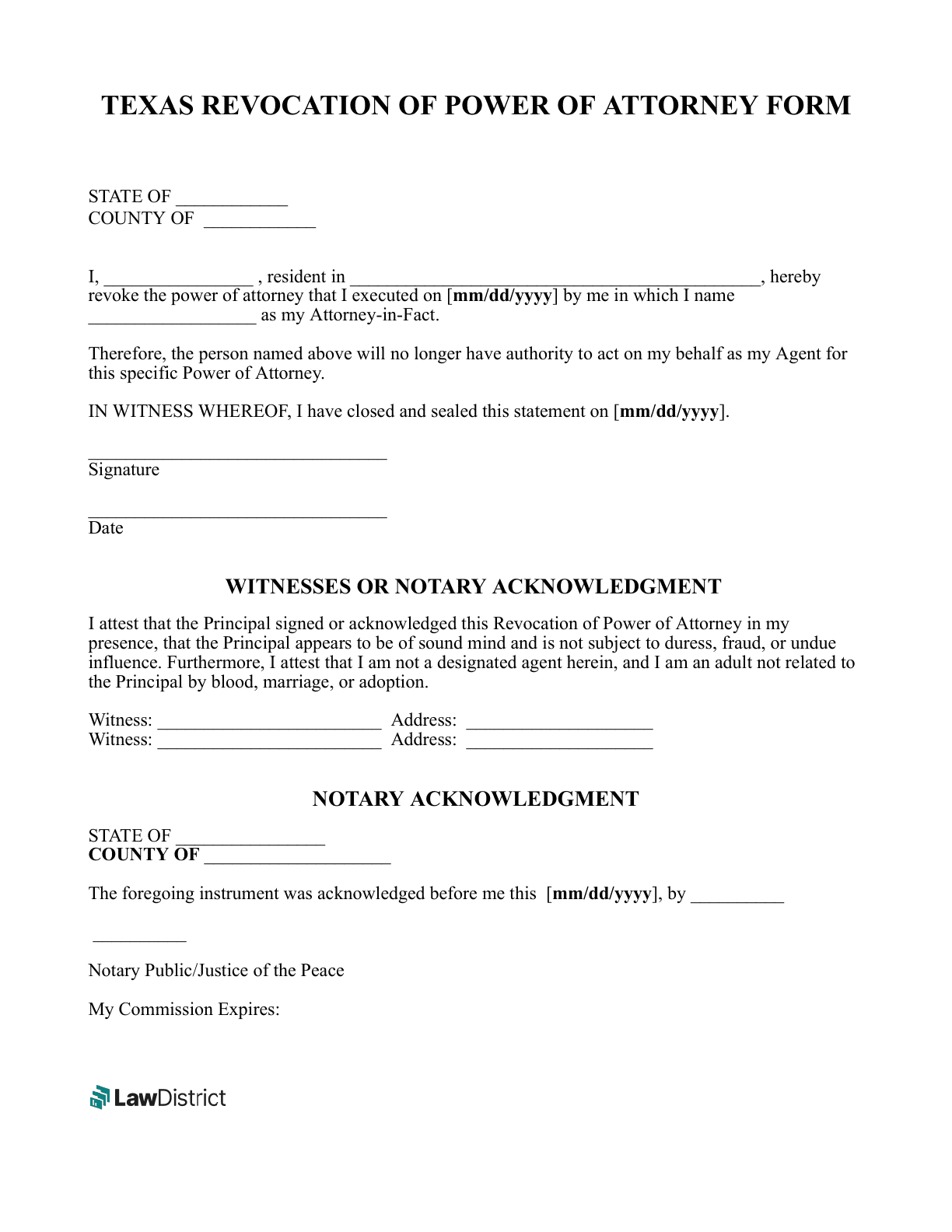Texas Revocation of Power of Attorney Form
A Texas Revocation of Power of Attorney Form is a legal document used to cancel an existing power of attorney in the state of Texas. State laws require that this revocation be made in writing and properly communicated for it to be considered legally effective.

Revoking a Power of Attorney in Texas
In Texas, revoking a Power of Attorney is a legally recognized right of the principal, but there are state-specific rules that must be followed to ensure the revocation is valid and enforceable.
Texas Legal Framework
The principal may revoke a Power of Attorney at any time, as long as they have legal capacity to do so. (Texas Estates Code, Title 2, Subtitle P, Ch 751).
This means the principal must be able to understand the nature and effect of the revocation at the time it's executed.
The POA can only be revoked through court intervention if the principal is deemed incapacitated. This can lead to a guardianship proceeding.
Written Revocation and Delivery of the Document in Texas
To revoke a Power of Attorney in Texas, you must write and sign a dated document that clearly says which POA you are canceling. Make sure it includes the date it was signed and the name of the agent.
You must then give a copy of this revocation to the agent and to anyone else who may have used or relied on the original POA, like banks, hospitals, or title companies.
You can download a Revocation Power of Attorney form that contains all the necessary elements from this website.
Texas law places heavy emphasis on notice. The revocation does not take effect with respect to a third party until that party has actual notice of the revocation. Delivery of the revocation is essential. Consider using certified mail to guarantee that you have a record of delivery.
Does the Revocation Need To Be Notarized in Texas?
Although notarization is not legally required to revoke a POA in Texas, it is strongly recommended. A notarized revocation strengthens its legitimacy and may be required by institutions to update their records.
For real estate, the original Power of Attorney (POA) is often filed with the county clerk. If this was the case, the revocation must also be filed there.
This helps guarantee that the revocation is effective for future property transactions.